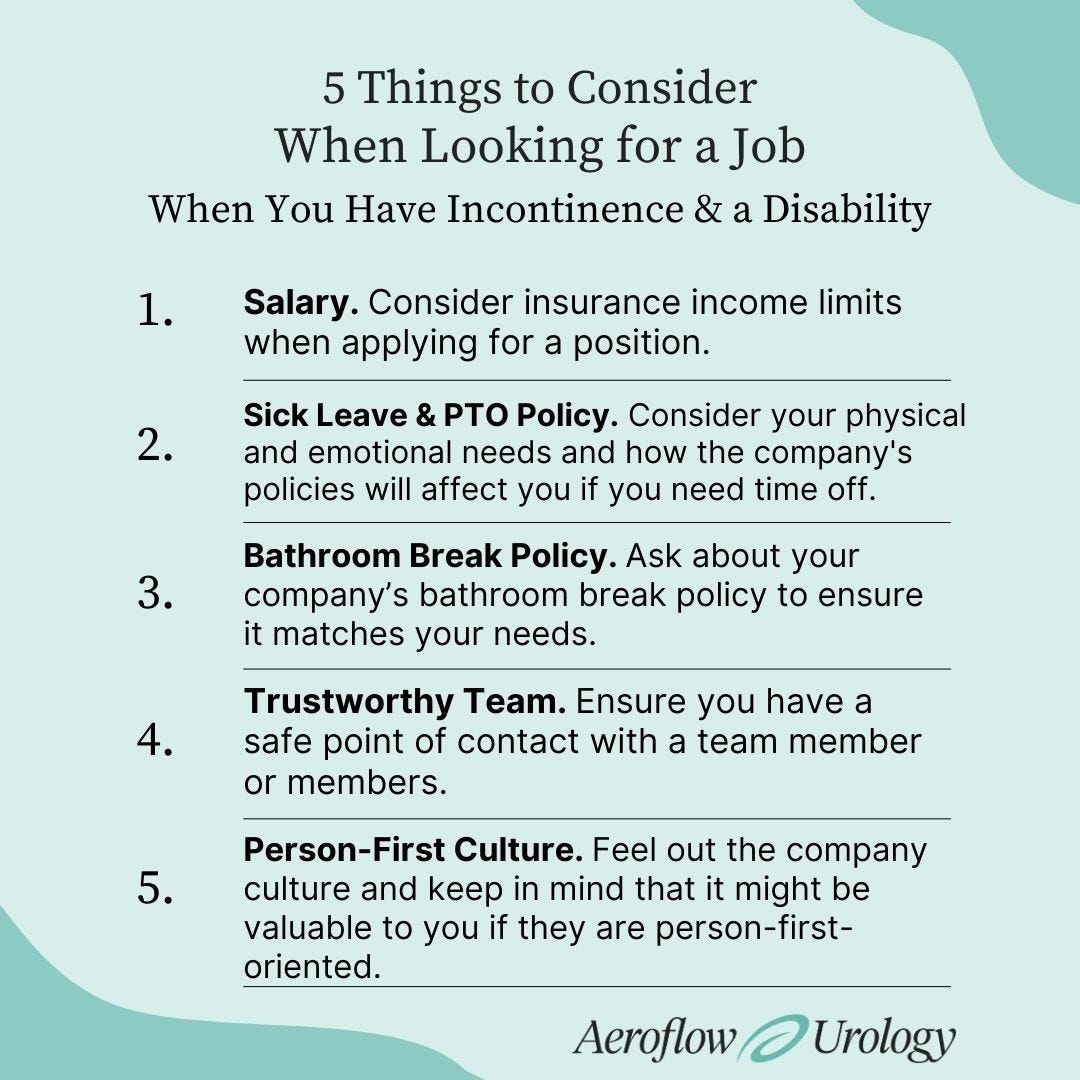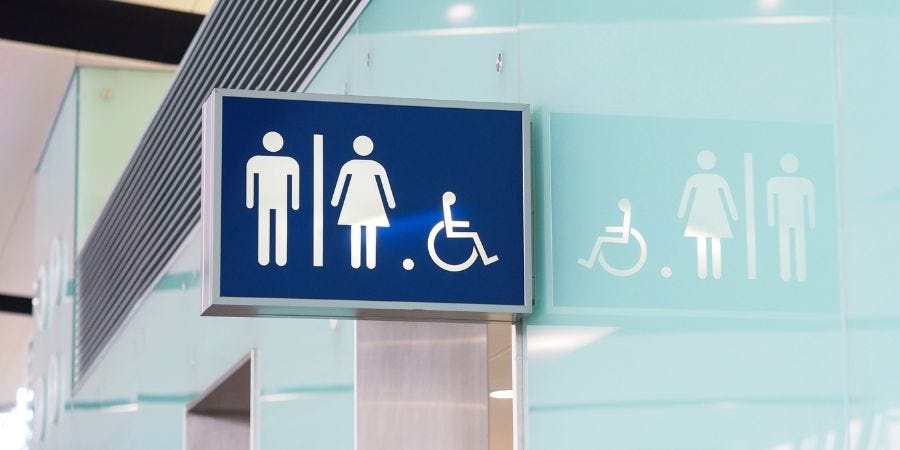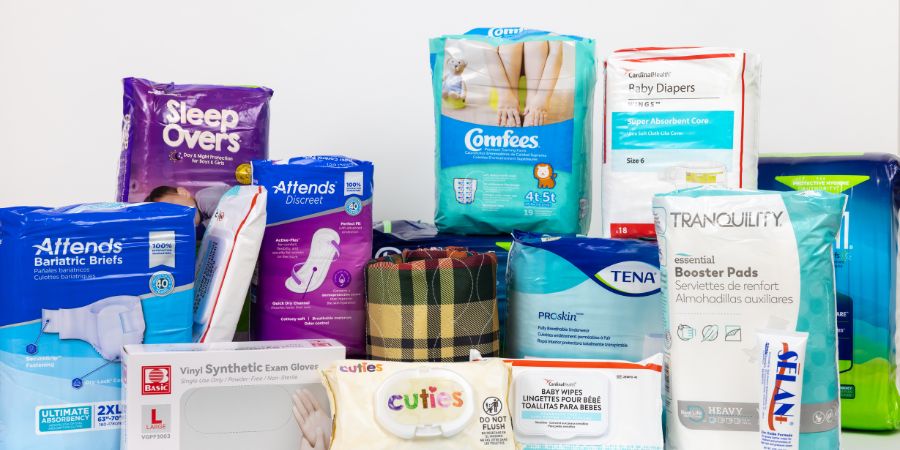Edit by Marlee Septak, Senior Content Specialist at Aeroflow Urology.
Key Takeaways:
- Overcoming the stigma around incontinence requires breaking the silence and advocating for one's needs.
- Managing incontinence discreetly in the workplace is possible with the proper support and strategies.
- Empowering individuals with incontinence involves fostering empathy, inclusivity, and open communication in workplaces.
Jump To:
Embracing Professionalism in the Workplace
Accepting Financial Limitations
Tips for Successfully Managing Incontinence at Work
What to Consider When Looking for a Job When You Have Incontinence & a Disability
INCONTINENCE PRODUCTS THROUGH INSURANCE:
Aeroflow Urology is in-network with many Medicaid and Medicaid-managed insurance plans and is accredited by Medicaid. Complete our Eligibility Form, and we’ll automatically check to see if your plan covers incontinence supplies. ***Must meet certain requirements to qualify.***
You will also receive the care and attention every person managing incontinence deserves: A personalized list of 100% insurance-covered incontinence supplies, a dedicated Continence Care Specialist you can contact during business hours, a user-friendly online portal for easy monthly reordering, and educational content.
Get the continence care you need with the dignity you deserve. Join the Aeroflow Urology family today! It only takes 5 minutes to get started.


Check Your Eligibility
2 Easy Steps
Discover the continence care essentials available through your Medicaid plan.
In most public places, like work, it's generally not considered "socially appropriate" to talk about restroom habits or challenges, to pass gas frequently, or to have accidents.
However, with the limited number of restroom breaks and limited access to bathrooms in these situations, it can feel intimidating to advocate for your basic human needs, especially if you have challenges with communication.
No one wants to feel at risk of punishment for needing to use the restroom. In this article, I'll share how I overcame the stigma of incontinence and how I successfully managed my incontinence as an adult in the workplace.
Entering the Workforce: Embracing Professionalism
As I continue to think about my next steps in starting my career and going to work, I consider my skills and the types of job titles, and I mentally prepare myself for any challenges I might encounter.
Having incontinence and making a choice to wear protective products will likely never be a skill or type of experience someone is looking for in the workplace, and it's not something I would want to openly mention on a resume because it does not entirely represent my identity as a person. No one wants to be defined solely by how they manage their health.
However, to receive accommodations for incontinence at work, like access to supplies and extra breaks for the restroom, you have to be the one to disclose the information. If only it were as easy as checking a box or typing it in a resume online! But the most challenging part is sharing person to person in the workplace.
Accepting Financial Limitations
One of the challenges I have is accepting my financial limits. If I earn too much income for Medicaid and other services, like Supplemental Security Income (SSI), I have to switch to a plan from the Health Insurance Marketplace possibly, and there's no guarantee that incontinence supplies will be covered universally, regardless of the insurance I choose.


This means I could still have the opportunity to keep a part-time job under these limitations and still keep my Medicaid services, but I would be missing out on potentially better opportunities if the salary is too high.
Losing essential services like SSI and Medicaid can also make it challenging when having to go through the lengthy process of reapplying if I lose my job.
Tips for Successfully Managing Incontinence at Work
While every person's work experience is unique, there are some strategies to consider when trying to maintain professionalism in the workplace when you have incontinence.
Here are some tips for success when managing incontinence in the workplace:
- Learn to treat people with respect when managing your health.
- Manage your time along with your responsibilities.
- Be aware of your surroundings (know where restrooms are).
- Review your schedule to see when you can take bathroom breaks.
- Stay hydrated.
- Understand your needs by wearing protection discreetly.
- Use Aeroflow Urology to get free incontinence supplies through insurance so you’re protected at work.
- Know your rights to flexible scheduling or remote work.
- Speak up about your condition in the right way to protect your rights as a person with a disability.
- Get a prescription for incontinence supplies from your healthcare provider.
- Be prepared with an emergency change bag.
- Focus on a good balance of proper nutrition and hydration.
- Know your working income limits for Medicaid (if applicable).
What to Consider When Looking for a Job When You Have Incontinence & a Disability
Here are some of the most important things I consider when looking for a job as a person with incontinence and autism.
1. Salary
Continuing to have access to my Medicaid insurance is valuable for me because it means I can continue receiving my free supplies from Aeroflow Urology and my medications and keep doctor's appointments.
Consider your insurance income limits when applying for a position at an employer.
2. Sick Leave or PTO Policy
It's essential to accept that there will be bad days when managing incontinence when you may have to take work off because of your symptoms. For me, it helps to know when I can take a break or call out if my symptoms are severe enough that I need to rest.
Look at your potential employer's sick leave or paid time off (PTO) policies, and consider your physical and emotional needs and how the company's policy will affect you if you need time off.
3. Bathroom Break Policy
It also helps to know that the company you're applying to allows flexible bathroom breaks without risks. Privacy when changing and disposing of products can be a significant benefit for people in need.
4. Trustworthy Team
You may not feel ready to disclose your disability until after you're confirmed as hired for the position, but having a safe point of contact who is not judgmental makes it easier to start the conversation.
I try to remember to frame any accommodations as a way to benefit my effectiveness at work and not to share any medical details unless it feels appropriate and will be treated with privacy. If I disclose my disability, I shouldn't have to feel like I'm treated as less valuable for something I can't always control.
5. Person-First Culture
It's important to remember that your health comes first and that it is your right to choose. I also remember that incontinence does not reflect someone's work ethic or professionalism. The place you want to work should hold these same morals.
Feel out the company culture, and keep in mind that it might be valuable to you if they are person-first-oriented.
Shifting the Stigma Around Incontinence
When it comes to using products for incontinence, people with a lack of awareness can often fear what they don't understand.
There's a stigma that diapers are for babies and that people– including adults who use them– are neglecting personal hygiene and have a lack of self-care or are unable to care for themselves independently.
The reality is that incontinence is a common condition that affects people across different ages and body types, and using protective supplies should not be a source of shame or embarrassment.
When you are able to have a choice in how you manage your incontinence, it can feel like reclaiming control, and your condition doesn't have to carry a sense of hurt with it. Wearing protection at work can reduce worry and give a sense of peace and control. It's a way of showing self-care while still being responsible.
We don't always start off successfully learning to control our needs early on when we're young, but we try to adapt and learn over time as we grow throughout life. Control isn't perfect in any person 100% of the time. We all have accidents at some point in our lives, even if we don't want to admit it openly.
Navigating incontinence requires resilience, discretion, and advocacy. By breaking the silence and embracing personal needs, individuals can foster empathy and inclusivity, leading to a future where incontinence is destigmatized in the workplace, and individuals can live confidently in all aspects of life.
Jump To: Top | Eligibility Form
Disclaimer
Information provided on the Aeroflow Urology blog is not intended as a substitute for medical advice or care from a healthcare professional. Aeroflow recommends consulting your healthcare provider if you are experiencing medical issues relating to incontinence.












